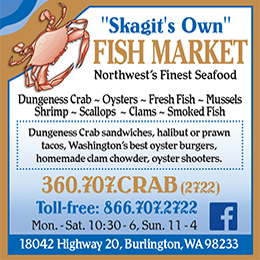Community-Supported Agriculture
Birdsview, Rockport farms satisfy our appetite for good food, close to home.
By Patricia Blauvelt
posted 3.8.10
According to the USDA, approximately 2 percent of our entire population is responsible for the food that reaches our mouths daily. Through mass production, the relationship between consumer and grower dissipates, and the remaining 98 percent of the population has little or no say in what is grown or how it is grown. Add thousands of miles between you and your food, environmentally hazardous pesticides and poorly paid laborers to the mix, and you may not feel comfortable with the phrase “you are what you eat.”
There is an alternative.
Before the construction of supermarkets and chain stores, small communities thrived in their own right, and were dependent on local farms for produce, meat, and grain. In a community such as this, your support contributes to the production of your food, you have direct contact with the grower, and it’s likely that your produce was picked within 24 hours of reaching your table. This is the foundation of Community-Supported Agriculture (CSA).
Originating in the 1960s in Switzerland and Japan, the CSA model was sought after to ensure quality food and security, and support for small farmers as larger farms became more dominant. Introduced to the United States in the mid-1980s, CSAs have steadily grown as the demand for organic and local food increases.
The CSA concept is simple: local people supporting their economy and the production of their food. CSAs involve a community of individuals who pledge to support farm operations for better or for worse. Benefiting from bounty or risking variable harvests, grower and consumer are in it together. Investing in a share of the crop before the harvest season begins, to cover anticipated costs and salaries, the shareholders receive a portion, usually small or large, of the farm’s highly nutritious, fresh, and usually organic crop. Although farms may vary slightly in form of distribution and produce, pick-up normally is once per week at the farm. Produce typically includes lettuces, carrots, beets, potatoes, tomatoes, cucumbers, peas, berries, and other vegetables and fruits. Some CSAs also offer meat and dairy products. Seasons range from 18 to 23 weeks, depending on weather.
Jericho Farm
Rebecca Morse, of Jericho Farm in Birdsview, believes the benefits of CSAs are numerous—for both grower and shareholder.
“CSAs offer a mutually beneficial relationship between grower and consumer. The grower gains financial support to begin production and the consumer receives a wide variety of nutritious food with peace of mind knowing where, how, and by whom their food is grown,” said Morse.
Planting their roots, as well as Jericho Farm, in the Upper Skagit in spring 2004, Morse, along with partner, Andrew Cambo, and son, Thalen, have been selling at the Concrete Saturday Market since 2006 and have been offering CSA since 2007. Morse began organic farming in 1998 and has extensive experience with CSAs and markets. She currently grows on half an acre and plans to expand to a full acre this season, adding blueberries, raspberries, and fruit trees.
Besides selling at Concrete Saturday Market, Morse is opening up five additional CSA shares at Jericho Farm this spring and also is offering informative gardening classes beginning April 1. Classes will cover such topics as tools, fertilizers, cover cropping, companion planting, record keeping, and helpful resources.
Shares at Jericho Farm can be bought as small or large and are distributed from mid-June through October. Small shares can feed 1 to 4 people and cost $250, while larger shares can feed 2 to 6 people and cost $375. If paid in full by April 1, a 10 percent discount will be applied, but $50 will hold a spot until July, when the full amount of a share is due in full. Jericho Farm also accepts weekly EBT payments.
Why is she so committed to CSAs? “Honestly, I can’t imagine doing anything else, it just makes sense to me,” said Morse. Although she admits competing with larger farms can be a challenge, the community keeps her going just as she keeps them going. “It’s really lovely, the support from the community. I believe every community should have its own farm, and I want to support this community.”
To inquire about CSA shares, classes, or to schedule a visit to Jericho Farm, contact Morse at 360.826.3046 or [email protected].
Blue Heron Farm
Anne Schwartz and Michael Brondi of Blue Heron Farm in Rockport, also offer CSA shares. Following organic farming practices since 1980, Schwartz and Brondi tend to an abundance of vegetables and berries, many kinds of bamboo, and trees and shrubs native to the Pacific Northwest. Serving on the board of Tilth Producers of Washington (an organic farming organization) for more than 30 years and as president for 17 years, Schwartz continues to hold an active voice within many organizations, advocating for change and promoting organic, sustainable and family farming.
With its line-up of more than 35 kinds of vegetables and herbs, and more than 70 varieties among them, Blue Heron offers large shares (2 adults plus 1 to 2 kids) for $400 and small shares (for 1 to 2 adults) for $325, from mid- to late-June until October.
Shares can be picked up on Wednesdays at Blue Heron Farm, Rockport, or the Sedro-Woolley Farmers’ Market.
A minimum payment of $50 is required at registration, but payment in full is preferred. Blue Heron also can work out a payment plan for the first of every month, with the final payment due August 1. A limited number of work trades also is offered for those interested in working for part or all of their share.
Occasional bamboo crafts, plus harvesting and preparing bamboo shoots, are available at Blue Heron, as well as U-pick raspberries and blueberries.
Schwartz fell into farming shortly after earning her B.S. in Animal Science from WSU. “It seemed like a lifetime of learning wouldn’t be enough, there would always be more to learn. This is definitely true, and the notion of bringing this abundance of high quality, great tasting food into the world is good work,” she said.
For more information on how to purchase a CSA share at Blue Heron, or make an appointment to visit the farm, contact Anne Schwartz at 360.853.8449 or [email protected]. Extensive information about crops, bamboo, and native plants at Blue Heron is posted on the farm’s Web site: www.marblemount.com/blueheron.






